Alphabet Recognition Normal Alphabet Coloring Pages Worksheets for Ages 4-6
10 filtered results
-
From - To
Discover our vibrant Alphabet Recognition Coloring Pages Worksheets for ages 4-6 at Kids Academy! These engaging printables combine fun coloring activities with essential alphabet-learning skills. Perfectly designed for early learners, they enhance letter recognition, fine motor skills, and cognitive development. Each page introduces a unique letter, accompanied by delightful illustrations for kids to color, making learning both enjoyable and effective. Boost your child's early literacy journey with these creative and educational worksheets that turn the alphabet into an adventure! Access these free resources and watch your little ones learn and grow with joy.
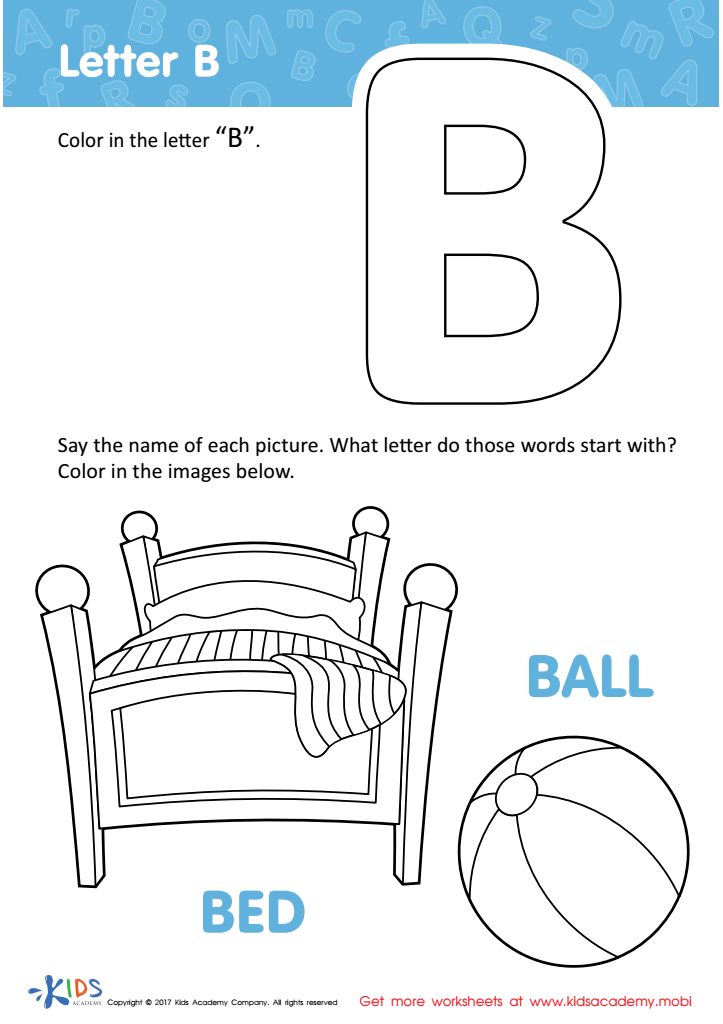

Letter B Coloring Sheet


Letter A Coloring Sheet
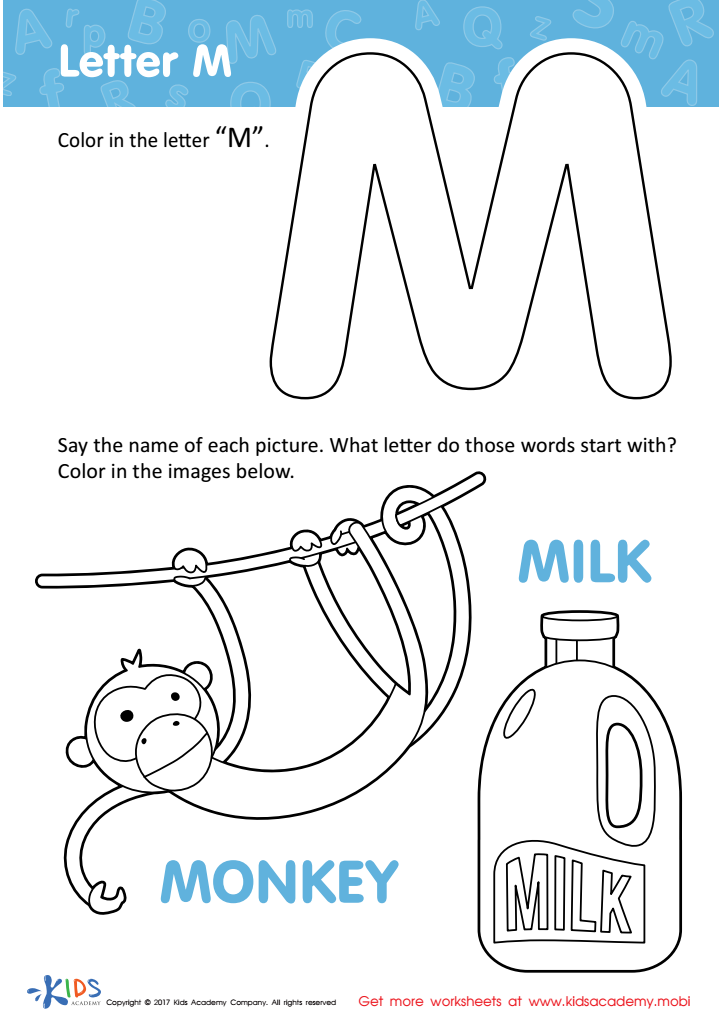

Letter M Coloring Sheet
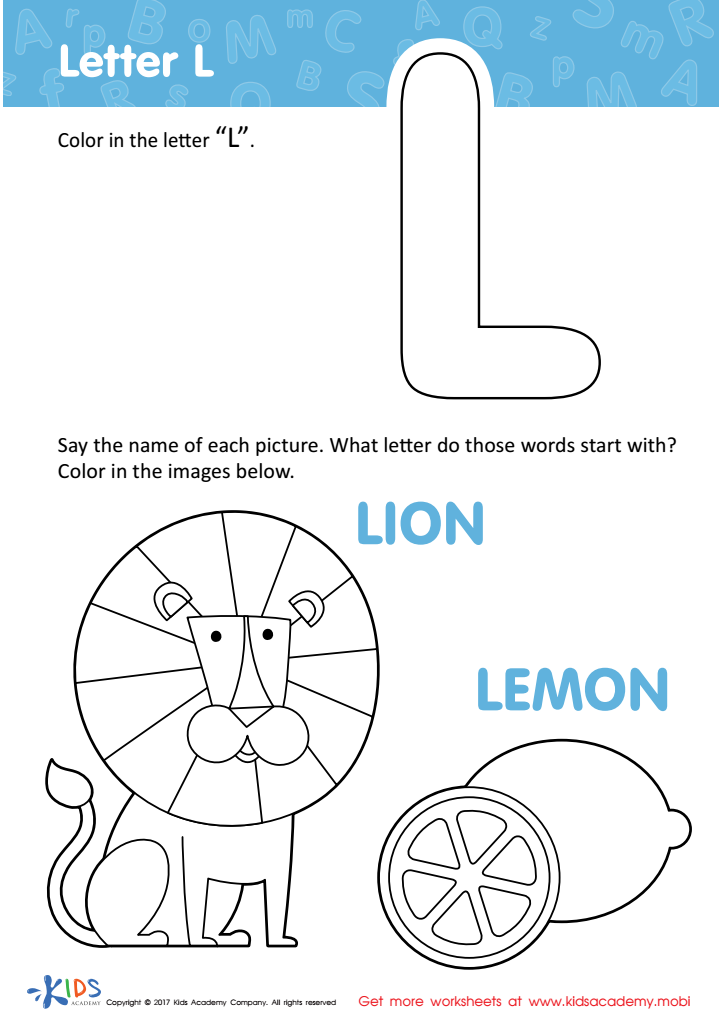

Letter L Coloring Sheet
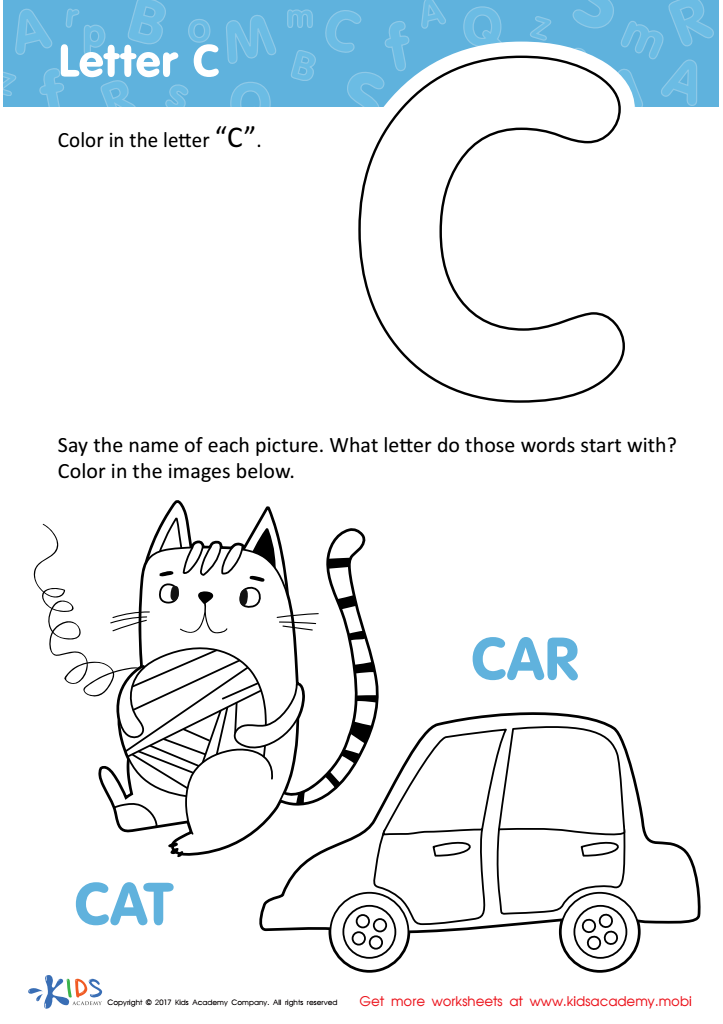

Letter C Coloring Sheet
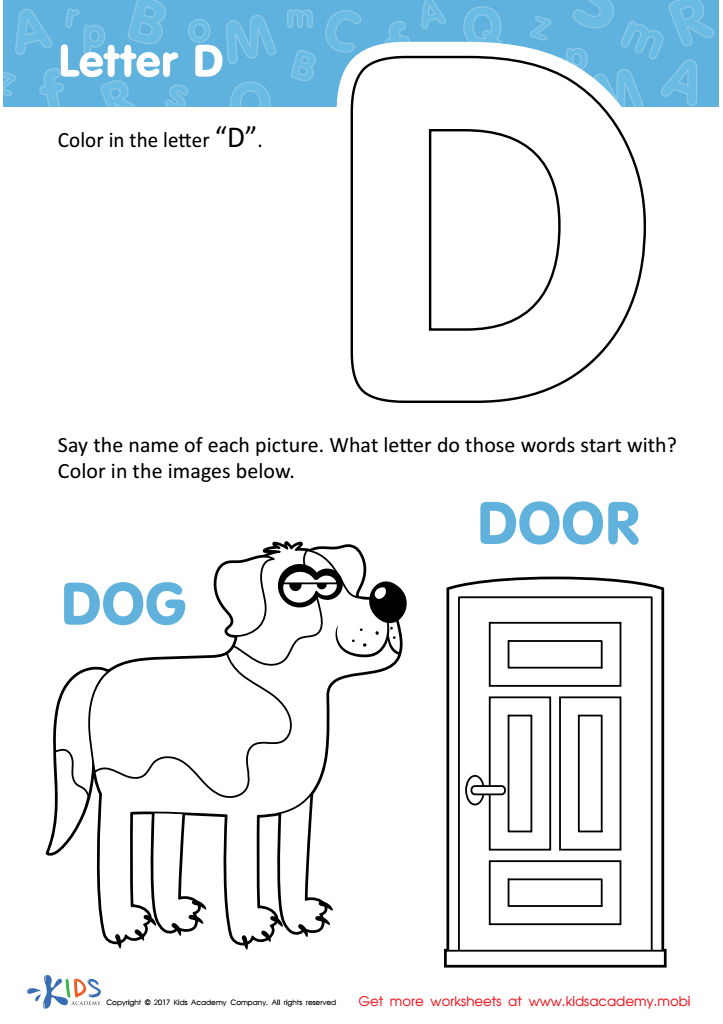

Letter D Coloring Sheet
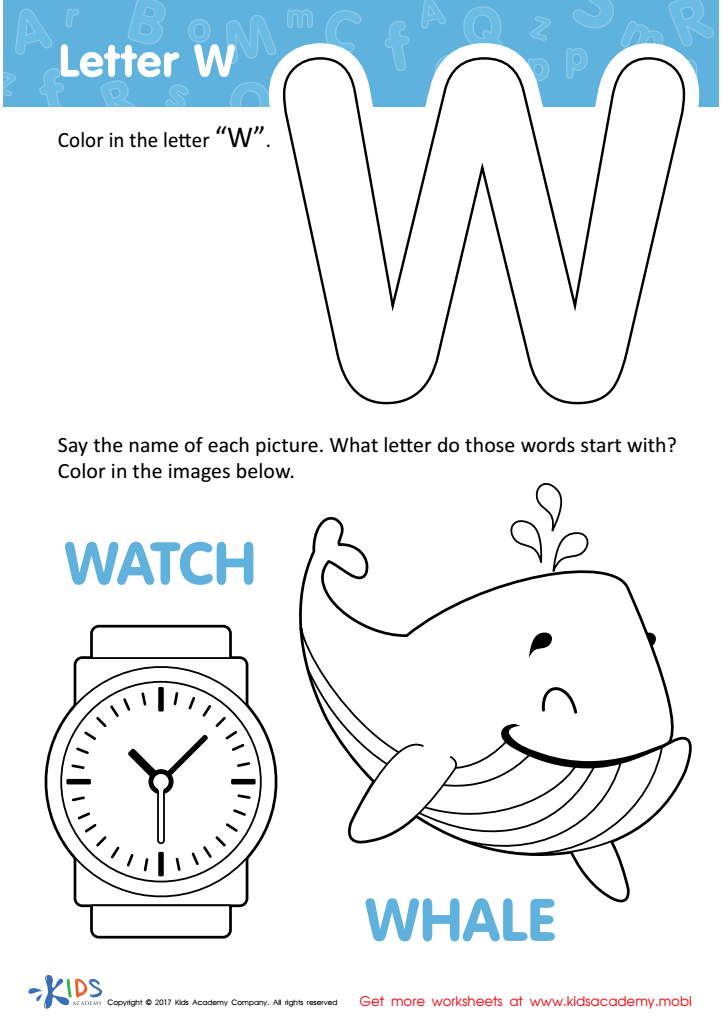

Letter W Coloring Sheet
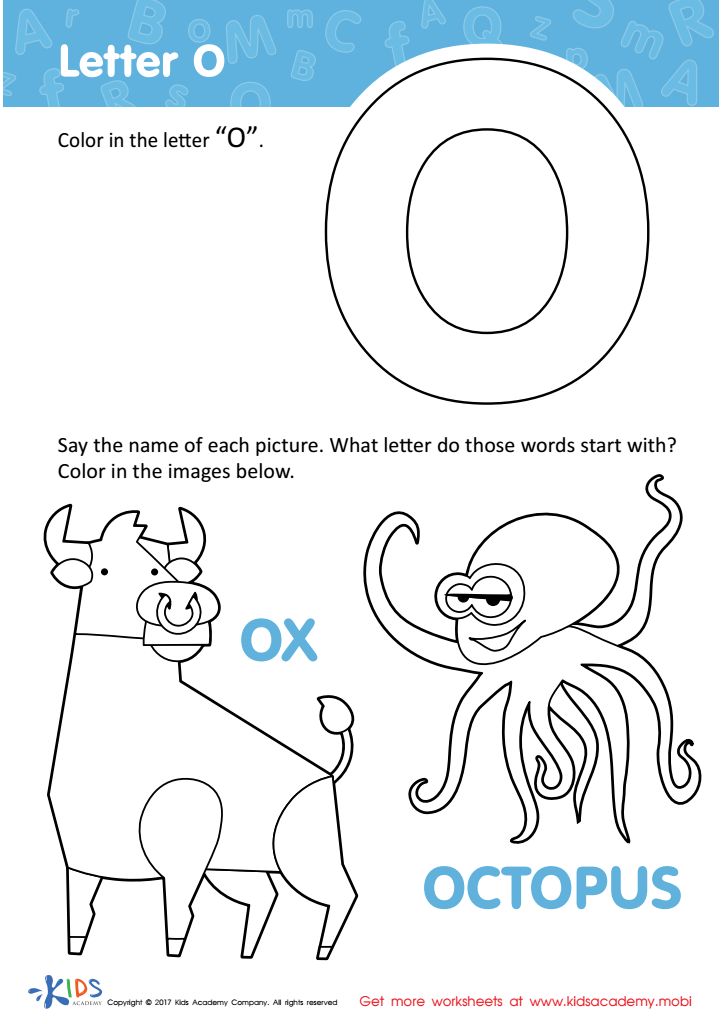

Letter O Coloring Sheet
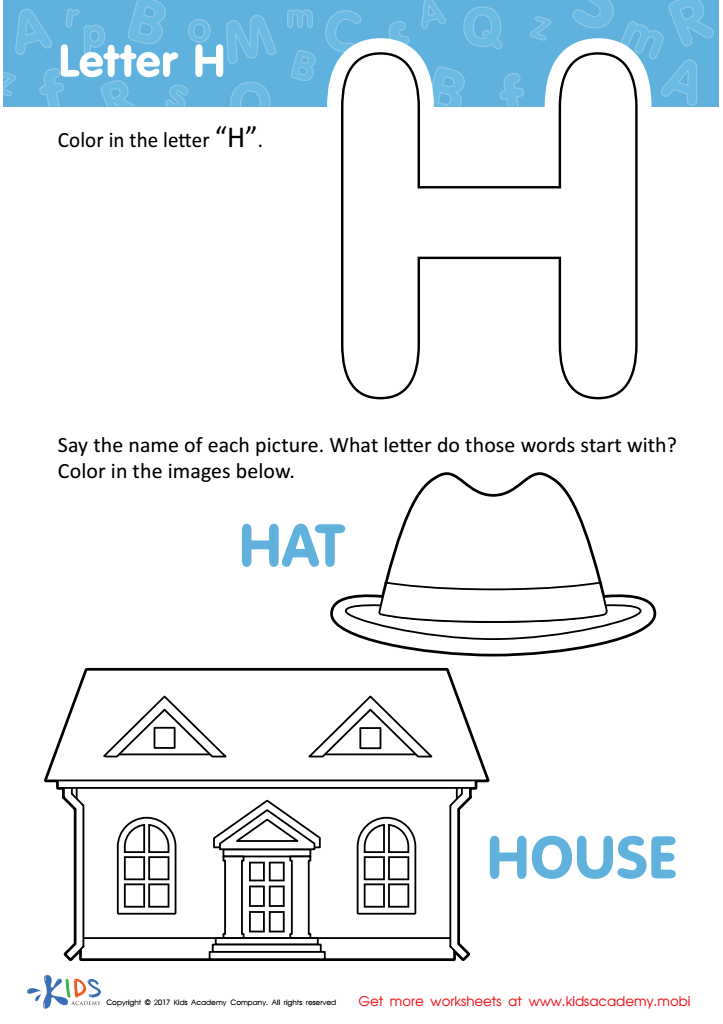

Letter H Coloring Sheet
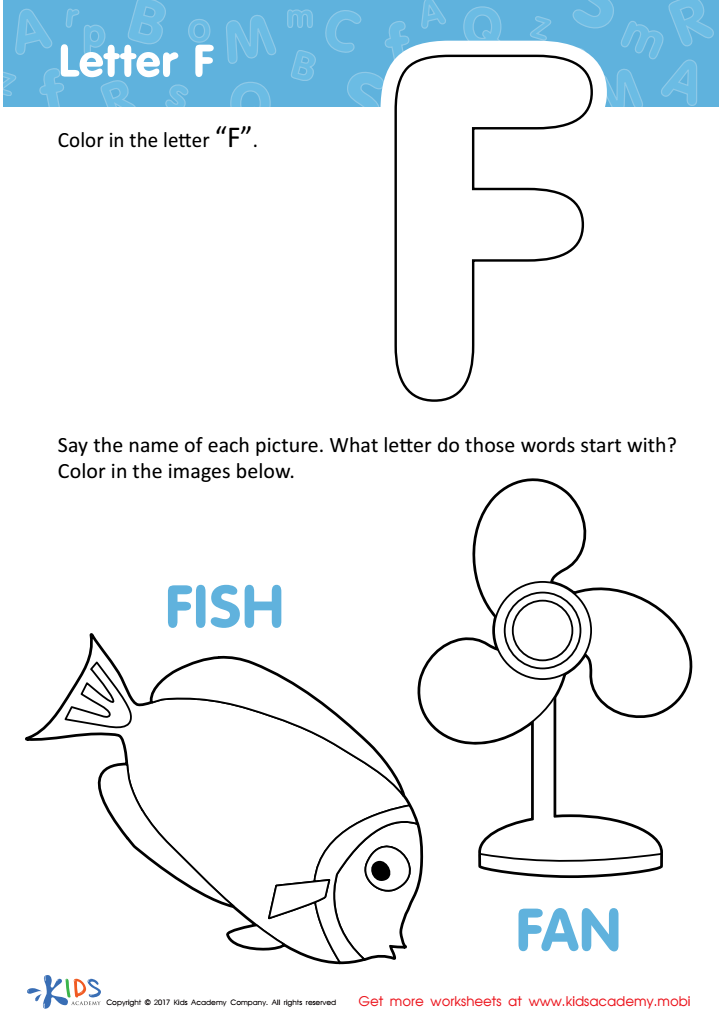

Letter F Coloring Sheet
Parents and teachers should care about Alphabet Recognition Normal Alphabet Coloring Pages for ages 4-6 because these activities play a crucial role in early literacy development. At this formative stage, children are building the foundation for reading and writing, skills that are essential for lifelong learning and success. Through engaging and interactive methods like coloring, children can familiarize themselves with the alphabet in a fun and enjoyable way, making it easier for them to remember and recognize letters.
Coloring pages offer a multisensory learning experience. Children not only see the shapes of the letters, but also trace and color them, which helps to reinforce their memory through muscle movement and visual engagement. This multisensory approach supports diverse learning styles and can be particularly beneficial for young learners who may struggle with traditional rote memorization.
Additionally, coloring within the lines helps to develop fine motor skills and hand-eye coordination, which are important for writing. Alphabet coloring pages often include pictures of objects that start with the corresponding letter, which helps in building vocabulary and the connections between letters and sounds.
Overall, Alphabet Recognition Normal Alphabet Coloring Pages provide an enjoyable and effective way to introduce young children to the alphabet, setting the stage for successful early literacy development.
 Assign to My Students
Assign to My Students












